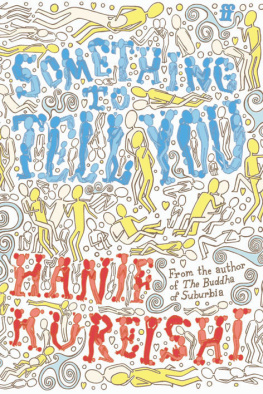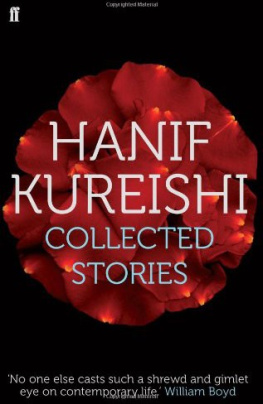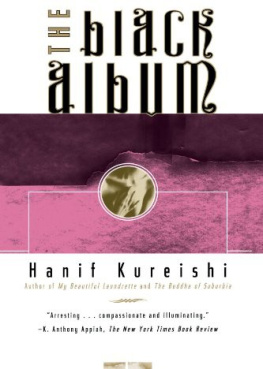BEST BRITISH SHORT STORIES 2020
Series Editor Nicholas Royle
In memory of Clive Sinclair (19482018)

NICHOLAS ROYLE
INTRODUCTION
Imagine if we had a high-profile weekly newsstand magazine, in this country, publishing a new short story every week. Americans have the New Yorker. Obviously we can read the New Yorker, we may even subscribe, but how often will we find a British author featured? Every now and then, sure, but the magazine doesnt tend to look very far beyond the upper echelons (British writers featured in the magazine last year included Hari Kunzru, Salman Rushdie, Hanif Kureishi, Pat Barker and Tessa Hadley). The New Yorker doesnt appear to feel any need to encourage emerging British writers and why should it? That would be the job of a prestigious British magazine, like, say the New Statesman. I suppose we should be grateful that the New Statesman continues to publish stories at Christmas and, somewhat unpredictably, in either or both of their spring and summer specials.
The trouble with the Christmas double issue is that it carries both dates the old year and the new. Was Kate Atkinsons story, in the 2018/19 Christmas special, published in 2018 or 2019? You might think it doesnt matter, that I should be less obsessed by dates, but youve got to have rules. Without rules you have anarchy. The 2019/20 Christmas special had a story by Lucy Ellmann. Three other stories appeared in the magazine in 2019: Daisy Johnsons Big Brother satire How to Win in the spring special and Sarah Halls discomfiting The Woman the Book Read in the summer special. In the autumn books special, William Boyd introduced a story by Olga Nekliudova. Knowing of William Boyds enthusiasm for metafictional trickery (remember Nat Tate?), I went online to find out a little bit more about Nekliudova and the very first link took me right back to the New Statesman and a section of the magazines website devoted to the fiction it publishes, which, when I scrolled down, appeared to solve the mystery of which year its Christmas stories are published in. The Lucy Ellmann was dated 11 December 2019 and the Kate Atkinson 5 December 2018. Mystery solved. Except that a little further down I find an Ian Rankin story dated 8 January 2016. My collection of back issues includes the 2015/16 Christmas special, dated 18 December 2015 7 January 2016; it contains the Ian Rankin story supposedly published on 8 January 2016, so, in fact, mystery not solved, after all.
Still, I think wed all like it if the New Statesman would publish more stories. One a week would be nice, please. The 2020 summer special came out while I was writing this introduction and I flicked through it looking for the expected short story. There wasnt one or isnt one. But perhaps this is a matter for next years introduction. Next year? Didnt I announce last year that this year would be my last, as series editor? I did. Concerned, however, that the series might be discontinued, I changed my mind.
I had already made most of my selections, for the present volume, before the arrival in the UK of Covid-19, but, crucially, what I didnt do was fetch a number of books and magazines from my office at Manchester Metropolitan University before the lockdown put them beyond reach. These were books and magazines that I would need to do as thorough a job of writing this introduction as I normally aim to do.
I did, however, have some of those books and magazines at home, among them Wall: Nine Stories From Edge Hill Writers (Edge Hill University) edited by Ailsa Cox & Billy Cowan. I loved this. The stories are good, its attractively designed and its short. Ultimately one story stood out. I liked how the absence of a conventional narrative in Sarah Schofields Safely Gathered In made you want to create one, or more than one, only for one eventually to emerge that was different from any of the ones youd dreamt up.
Two more volumes of Tales From the Shadow Booth appeared. The editor is Dan Coxon and theres still no publisher named, but theres a website. One has to assume it publishes itself. Stand-outs (in volume three) included Richard V Hirsts The School Project and Robert Shearmans I Say (I Say, I Say). Volume 4 boasts some great names, including Lucie McKnight Hardy, Gary Budden, Jane Roberts, Giselle Leeb I could go on. In fact, I could just repeat the list of contents. The imprint page is dated 2018, which I assume is a mistake, unless in the world of the Shadow Booth time goes backwards. Citizens of Nowhere (Cinnamon Press) edited by Rowan B Fortune, an anthology of utopian stories, is distinguished by stories from Jez Noond and Diana Powell, who, in 2019, won the Chipping Norton Literary Festival short story competition with Whale Watching.
I enjoyed original stories by Alicia J Rouverol, Mark Lindsey and others in issue 15 of Route 57 Environs: Modern Natures edited by Dan Eltringham and Vera Fibisan, part of a collaboration between the University of Sheffield and The Hepworth Wakefield; new stories by Angela Readman and Regi Claire stood out in Unthology 11 (Unthank Books) edited by Ashley Stokes and Tom Vowler. Threads and paths through life offered a way of connecting up the stories in Somewhere This Way edited by Rob Redman, the thirteenth volume in an ongoing series from the Fiction Desk. Shallow Creek didnt appear to have an editor credited, but it was a new venture from Storgy Books, in which the stories, by Tom Heaton, Daniel Carpenter, Aliya Whiteley, David Hartley and others, had to be set in the fictitious eponymous town.
Port, edited by MW Bewick and Ella Johnston, is a fascinating and cherishable addition to the editors own Wivenhoe-based Dunlin Press catalogue. It features, poets, place writers and short story writers responding to the theme suggested by the title. My favourite piece was Sarah-Clare Conlons The General Synopsis at Midday, about sailing to the Isle of Man. There were more boats, buoys and pontoons in Conlons Warning Signs, in a flash fiction special issue of the ever-wonderful Lighthouse journal from Gatehouse Press. At the darker end of the spectrum, Black Static, from TTA Press, continues to disturb and unsettle. My thanks to editor Andy Cox and some of his contributors during 2019, including Stephen Volk, Tim Lees, Steven Sheil and David Martin, for continuing to shine their flickering torches into the darkness of the worlds both around and within us.
Cnfing Magazine is super-reliable. Last years two issues included stories by David Rose, Stephen Hargadon, Justine Bothwick, Elizabeth Baines, Tom Jenks and Vesna Main. I especially liked David Roses Smoke, but not quite as much as his Greetings From the Fat Man in Postcards online at Litro. Highlight of Structos 2019, for me, was David Frankels story, Shooting Season, in issue 19. The regular arrival of Ambit remains a cause for celebration and the fact I selected only one story from their four issues last year Richard Lawrence Bennetts Energy Thieves: 5 Dialogues from issue 235 is a reflection of how many good new stories are being published in magazines, anthologies and collections, and online.
I very much enjoyed four debut collections: Jane Frasers The South Westerlies (Salt), Jennifer Nansubuga Makumbis Manchester Happened (Oneworld), Nick Holdstocks The False River (Unthanks Books) and The Map of Bihar and Other Stories (Circaidy Gregory Press) by Janet H Swinney, whose Washing Machine Wars is a wryly observed tale of politely warring Turkish and Indian neighbours in suburban England and their years-long bouts of competitive cooking, gardening and household appliance acquisition. I dont know why theyre called white people, said Aslan, one of Mrs eliks older boys, because theyre grey.

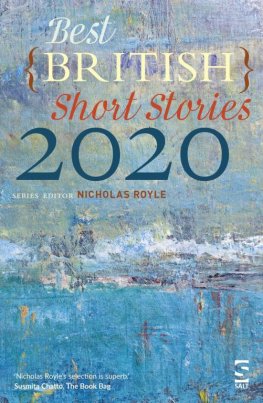
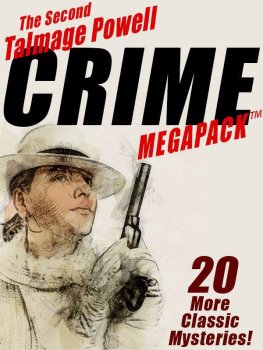
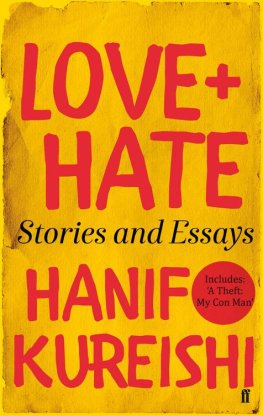
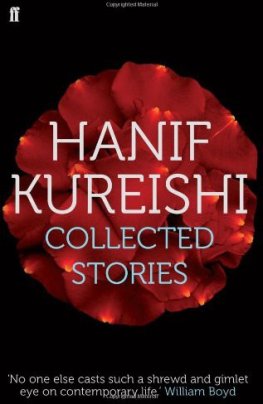
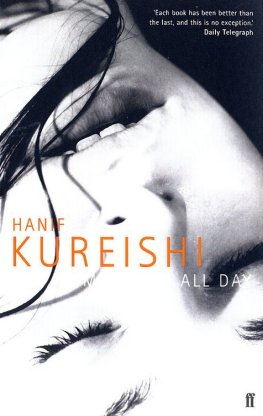

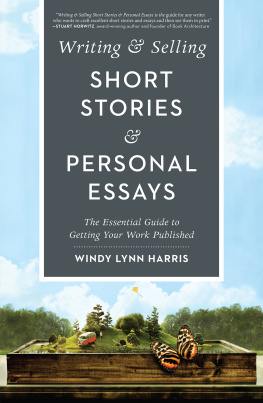
![Hanif Kureishi [Hanif Kureishi] - What Happened?](/uploads/posts/book/141306/thumbs/hanif-kureishi-hanif-kureishi-what-happened.jpg)
